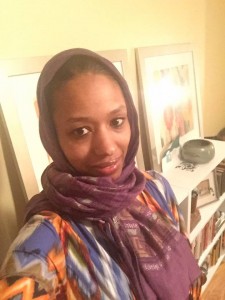 Apparently, at Wheaton College, a tenured political science professor who decides to wear hijab as an expression of her Christian solidarity with Muslim neighbors and quotes Pope Francis in support of that decision, is failing to “faithfully represent the College’s evangelical Statement of Faith.”
Apparently, at Wheaton College, a tenured political science professor who decides to wear hijab as an expression of her Christian solidarity with Muslim neighbors and quotes Pope Francis in support of that decision, is failing to “faithfully represent the College’s evangelical Statement of Faith.”
In part of a December 10 public post on Facebook, Dr. Larycia Alaine Hawkins states:
“I love my Muslim neighbor because s/he deserves love by virtue of her/his human dignity.
I stand in human solidarity with my Muslim neighbor because we are formed of the same primordial clay, descendants of the same cradle of humankind–a cave in Sterkfontein, South Africa that I had the privilege to descend into to plumb the depths of our common humanity in 2014.
I stand in religious solidarity with Muslims because they, like me, a Christian, are people of the book. And as Pope Francis stated last week, we worship the same God.
But as I tell my students, theoretical solidarity is not solidarity at all. Thus, beginning tonight, my solidarity has become embodied solidarity.
As part of my Advent Worship, I will wear the hijab to work at Wheaton College, to play in Chi-town, in the airport and on the airplane to my home state that initiated one of the first anti-Sharia laws (read: unconstitutional and Islamophobic), and at church.”
In response, her employer placed her on administrative leave pending a full review.
In her post, Dr. Hawkins recognizes the religious and political complexity of hijab within Islam, and indicates out that she sought counsel from local leaders of the Council on American-Islamic Relations in order to avoid offending and being patronizing to those with whom she seeks to stand.
While Wheaton hasn’t specified what exactly is theologically wrong with her action and statement, some have suggested that her saying Christians and Muslims worship the same God is the problem. (For more on this idea, check out the discussion over at Jesus Creed.)
In his blog post querying the story, Messiah College history professor Dr. John Fea says that faith commitments should inform decisions at evangelical Christian colleges, and that “the kind of expressions of human solidarity that Hawkins is exemplifying in this situation–expressions rooted in Christian theology (the Imago Dei)–are also appropriate at times.”
In addition:
“Though Hawkins doesn’t specifically frame it this way, her project also represents a commitment to religious liberty at a time when this value is under attack from some outspoken GOP presidential candidates. Her response is certainly different, and I would say more Christian, than the way the president of Liberty University recently handled this issue.”
I can’t help but see the intersection of race and gender at work in this case as well. This includes the race of the female professor herself as well as the racialization of Islam in the United States. The politicization of hijab is a global phenomenon, and another way in which women’s bodies are made to bear the burden of patriarchal religions and politics. Whether a woman veils or not is assumed to say everything about her piety, purity, orthodoxy, theology, and life.
It doesn’t. How people react to a woman’s choice to veil says more about the people who read their own politics and theologies onto her body.
In the case of Dr. Hawkins, a simple act and a statement of interfaith solidarity has put her hard-earned faculty position at risk.
The reaction reveals as much about those who have placed her on leave as it does about her.
Image via Hawkins post, where you can find other statements and images of support.












